Turning the big 4-0
After the conclusion of Health Net/Maxxis' first camp of the year in Solvang, California,...
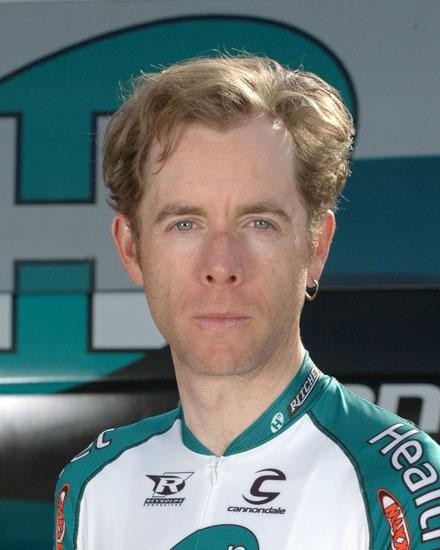
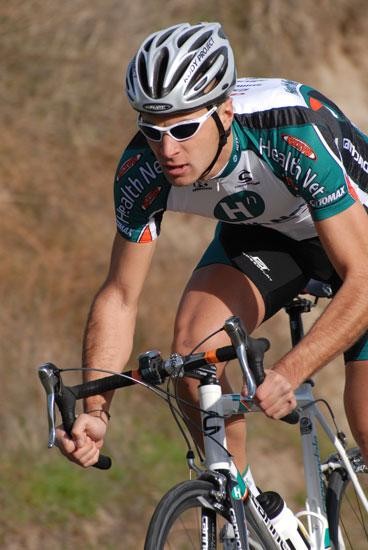
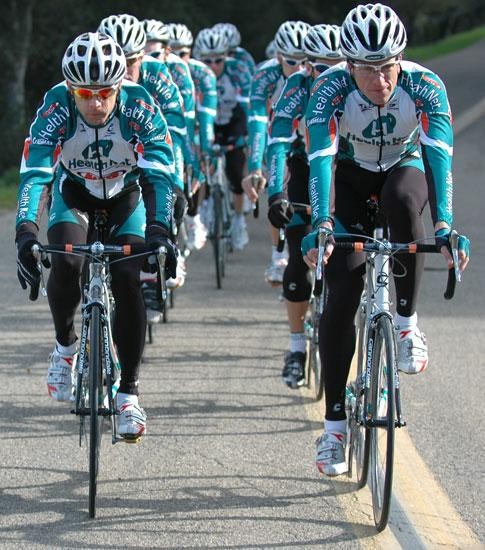
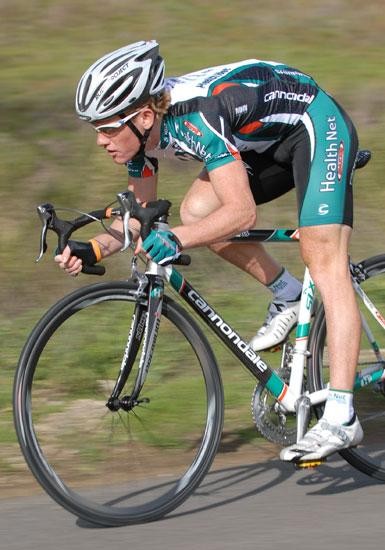
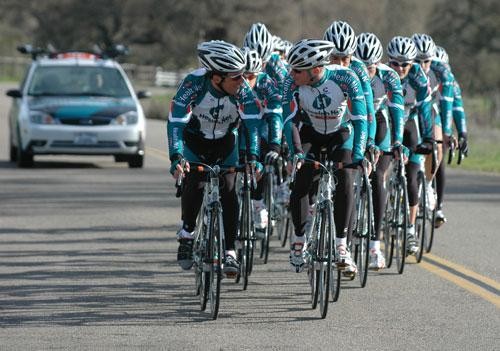
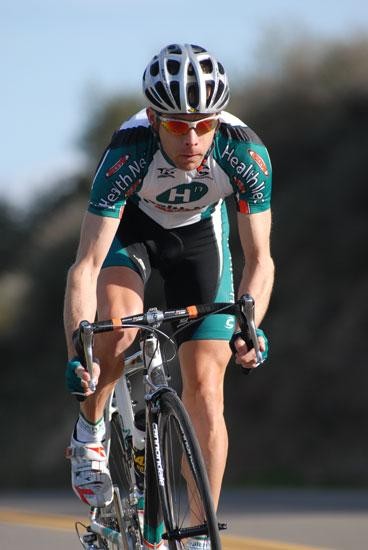
An interview with Scott Moninger, February 22, 2006
After the conclusion of Health Net/Maxxis' first camp of the year in Solvang, California, Cyclingnews' Rob Karman sat down with defending National Racing Calendar champion Scott Moninger to get his thoughts on his new team mates, the competition, changes to the US racing calendar - and turning the big 4-0.
After an overwhelmingly successful 2005 campaign, the number one-ranked US domestic squad has a lot to live up to, but at their recent training camp in the Solvang, CA area, it was clear that the riders on Health Net/Maxxis are not resting on their laurels.
Less than an hour after I completed my drive out to CA, I ran into seven-time Australian national time trial champion Nathan O'Neill at the local burrito joint where he was refueling with fellow new recruit Alberto Tibero. The brief report on the first few days of camp went something to the effect of: "I can't believe how tired and hungry I am. I got off the plane and it's been non-stop five and six hour rides every day..."
This continued for almost a week straight until they were forced to take a break and pose in front of my camera for a day followed by a weekend of sponsor meetings and a team building exercise along the lines of a scaled-down Team CSC epic.
Cyclingnews: How was camp?
Scott Moninger: Camp was great. We had really awesome weather from day one. With ten new guys, we didn't really know how it was going to shake out. Personalities and schedules and what-not. It ended up going really well and by the second or third day it felt to me like everyone was really meshing and jelling really well and we were kinda on the same page, even though we've got half the team vying for the Tour of California so their training is much advanced compared to the guys that are shooting for later season objectives. Great weather and a good productive camp, I thought.
Get The Leadout Newsletter
The latest race content, interviews, features, reviews and expert buying guides, direct to your inbox!
CN: You have a lot of young new guys. Anybody in particular that you noticed at camp that we should be watching for this year?
SM: A lot of those guys are keeping their cards close to their chest so I... there's this Swiss Italian guy we have, Alberto [Tiberio], who is a fairly young guy and definitely his fitness is not as far along as some of the other team-mates, but he might be a real surprise, a bit of an unknown factor for all of us. I would keep my eye on that guy.
Kyle Gritters seems to be really switched on. He's got a great attitude and I think he's really looking forward to having kind of a breakout year as well. Tim Johnson, I still consider him a young guy even though he's probably like 30, I think he's gonna have a really strong year. There's a long list and I think a lot of guys are really going to step up this year.
CN: You've mentioned that your racing age is 40 this year, but you are still going really strong with winning the NRC last season. At camp last year we talked about your plans for when you might hang up the bike, do you have a definite plan about that? I heard you mention something about going into team management. Do you have plans along those lines or are you just going to wait and see how you feel at the end of the year again?
SM: I've been leaning more toward the latter. Racing age is deceptive because my birthday is in late October so I'm basically racing the whole season at age 39 which to me doesn't seem nearly as old as 40. I'm really taking it year by year at this point. I did sit down and talk with management at camp about potentially working into some sort of role with the team and it's an opportunity, maybe not for a full time position but perhaps something part time, to transition away from bike racing.
For me, it would be really tough to go cold turkey, you know one year it's just "that's it, I'm done" and no involvement whatsoever with a team or 'the team'. I think it would be a good way to stay involved and figure out my next move at that point. As far as when that's going to be, it could very well be the end of this year.
They are just kind of leaving it open and I'm leaving it open. If I have another productive year this year and I'm still enjoying it then I don't see any reason to not continue one more year. But I've been saying "one more year, one more year" for a very long time so at some point I gotta own up to it and then move on. The bottom line is that I enjoy what I do and it's hard to just walk away from something you enjoy doing whether you are a bike racer or a dentist or an architect or whatever. When you know the end is nearing it's a tough call.
CN: I think it would be really cool to win the NRC at 40.
SM: [chuckles] I'm sure that management would agree - we'll see. Beating my teammates is probably going to be the hardest thing. We've got a bunch of really strong guys this year. Like Hayden Roulston is really on fire right now; he's already won like half a dozen races this year, I think. I know Nathan O'Neill is looking to have a really good year. I think those are going to be really key guys as far as the domestic scene and racking up big points in things like Philly week, Tour of Georgia and Tour of California. If you looked at the NRC from last year, three of the top four were Health Net guys. I honestly think to win it this year you're going to have to be a Health Net guy.
CN: Speaking of that, you guys had a phenomenal season last year winning just about everything. Big shuffle in the deck, you have 10 new riders, a bunch of guys left for the new United Pro team. How do you see the season shaping up? Do you think it's just going to be Health Net and United Pro duking it out each week or do you think some of the other teams are going to step it up?
SM: I definitely foresee a head to head battle every weekend between us and "the new dream team" but I think at the same time there are going to be a lot of teams that are going to be able to capitalize on that. A team like Jelly Belly or Kodak - Sierra Nevada, when they see that going on, they're going to be able to play their hand a bit and take advantage of that - whereas in 2005, it was all of those teams trying to dethrone us.
This new team has enough horsepower with guys like Tony Cruz and Wherry and JJ that I think day to day there are going to be hard to beat. I think their main objective is to beat us and our main objective is to win races, so I definitely see some stalemates happening there. And when that happens, I see some of the smaller teams being the opportunists and really taking advantage of that.
CN: Kind of like a few years ago when Horner was on Mercury and Leipheimer was riding for Postal and Klasna took Redlands and Sea Otter because Mercury and Postal neutralized each other. That kind of situation?
SM: Yeah, very similar to that where "you guys need to win this race so you pull or you bring that move back"; unfortunately you see that sometimes in cycling and it's not our philosophy, it's not the way we race. We go out there and try to win every single race but I'm hearing rumors that their objective is to beat us which in theory might mean you're winning the race and sometimes it might mean you're throwing the race away and that's not something we do. We go out there to win races, we don't go out to beat specific teams or riders.
In some ways they are assuming that to be the number one team they need to beat us but basically to be the number one team you just need to win races. Hopefully it doesn't come down to a Postal - Horner stalemate the way you referred to. Klasna is the one who came out ahead in all those battles and went on to win the NRC because he got on a roll and rode the wave because he got a lot of confidence because of those. Honestly, he was not the strongest guy at Redlands or Sea Otter. It was either Leipheimer or Horner but they ended up taking each other out of the mix. It's unfortunate, but sometimes that's the way it rolls.
CN: What do you think of the Tour of California being so early in the season? Is it going to put less of an emphasis on the traditional March California series that everyone geared up for in the past, particularly with Redlands being down to three days and Sea Otter being only one day. Is it a shift in the importance of those races?
SM: I think so. For me personally, I'm probably going to have a little bit better form at Tour of California then I will at some of those March races, but at the same time sometimes you need a race to kind of get in the full swing of things. Unfortunately for our team and a lot of other teams, Tour of California will be the first official race of the year which makes it a unique situation being one the biggest races we'll do in North America and also having it be the very first.
Me personally, I sometimes need 10 or 15 races under my belt to really feel like I'm on top of the form and really clicking. You can only train so much, to a certain point, then you just need to race to put the final touches on [your form]. At the same time, I have two or three weeks after Tour of California to come back and regroup, spend some time at home, so I may have better form at the March races like Redlands. It may just be the way it pans out.
I think our core team, I think everyone is really trying to be firing on all cylinders at Tour of California. The other races are important to us. Health Net puts a big emphasis on California so anything we do there is important whether it be Sea Otter, Redlands, Tour of California or Manhattan Beach, those are all really important races for us. That's one of the advantages of having a 16-man team is we'll be bringing in some fresh legs for all of those events.
CN: The USPRO Championships are moving to the end of the season. Is that a target for you, especially with the possibility of ending your career at the end of this season? Would it be really nice to go out with a bang?
SM: It would be a great way to wrap things up, but at this point I don't know anything about the course - I'm not sure that anyone does. It would need to be a pretty selective, pretty climbing oriented course for me to make that a big objective.
A race like Philly or some of the other courses we've used for Olympic trials just don't tend to be selective enough for me. Not that it's always a massive field sprint. They talked about using the Lancaster course - I have mixed feelings about that because as a 200k race that would have been very challenging. I think you would have seen some very small groups, but I don't know anything about this course. Until I see a profile and get a little more detail on it, it's just kind of a crap shoot at this point.
Late season is sometimes pretty good for me after a break in August without much stage racing going on, so I can sometimes ramp it up again one more time in September and get some pretty good legs. It's going to be interesting. We haven't had an all-American championships before so it'll be certainly a race where we should have 8-10 riders on the starting line but it will probably be a different chemistry of riders than we normally have. Most of our speed guys tend to be non-Americans. We've got Gord, Henderson, Hayden and Menzies and suddenly we'll be building a team around a bunch of Americans. It'll be an interesting race all the way around.